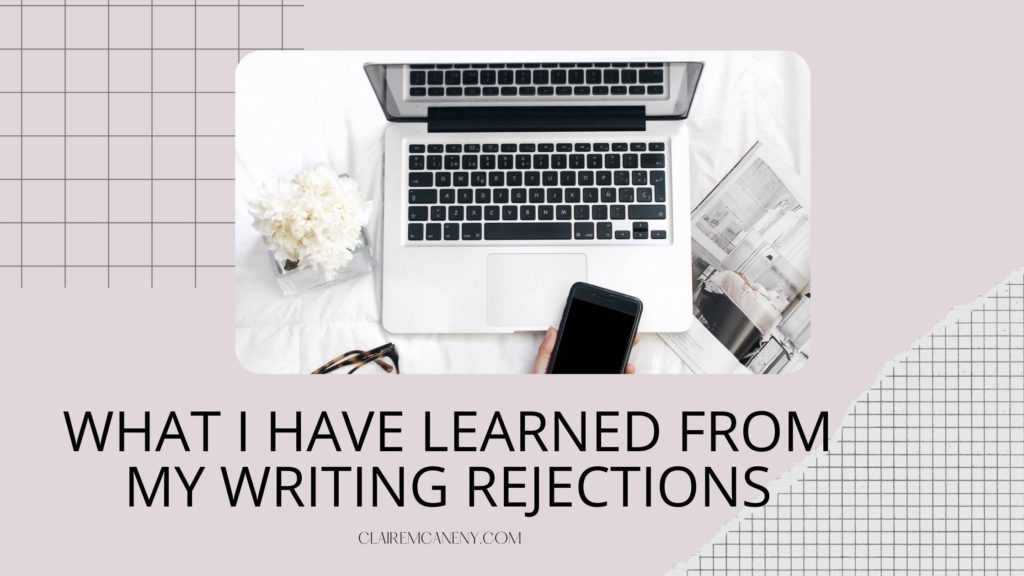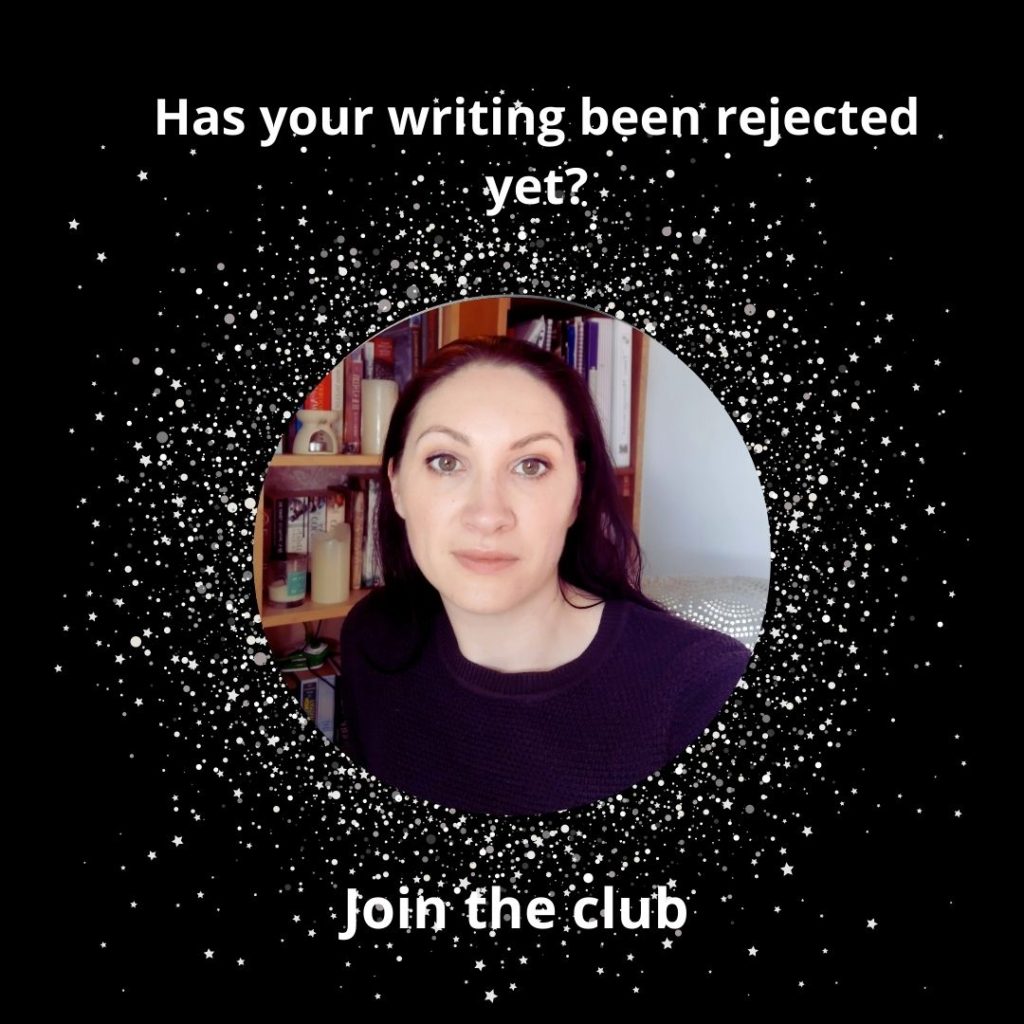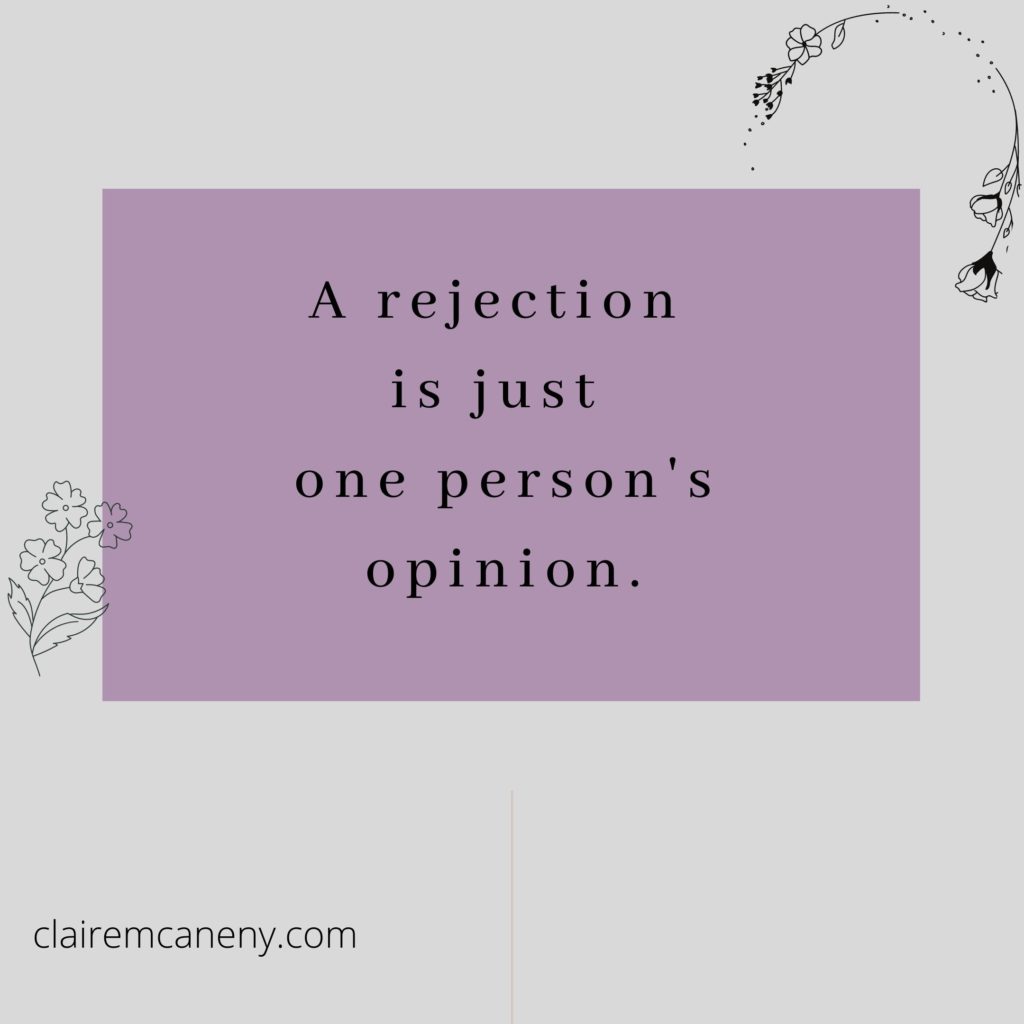What I have learned from my writing rejections

So far I have been rejected 14 times. I have submitted my short stories 15 times and gotten one acceptance and 14 rejections. But now I feel like I have joined the club of people who have had their writing rejected and I can call myself a writer. It is a much easier club to join than the published novel club. I want to share with you what I have learned from my rejections so far.
Everyone has experienced rejection – even Oprah – but we are not seeing Oprah at the start of her career so it is very hard to imagine how someone could reject such a successful person.
When I first started thinking about writing as a potential career I was reading Little Women.
I followed Jo’s journey with interest and celebrated when she got published. Part of my reluctance to take my writing seriously was because I was afraid of the rejections. Jo was rejected before she was accepted and I was heartbroken along with her. But facing that fear has helped progress my writing much further than any of the writing courses I have done or books that I have read.
Choosing to be rejected
I first started to think seriously about rejections when I read Stephen King’s On Writing. He did not have a specific number. He stuck his rejection slips on a nail on the wall until it got full and fell off. So I decided on 150 rejections. I have not given myself a time limit but it feels like a large enough number that I need to be less picky about where I submit to. I also need to submit more than one story to more than one magazine at a time.
Kim Liao writes here about her goal of 100 rejections a year. She points out that going through the rejection process helps prepare you for being accepted. Fear of success is also an inhibitory factor for a lot of people. This is a great article that explains what it is but also how to prevent it from holding you back. If you don’t risk being rejected then you can never be accepted.
My Rejection Process
It has been an interesting experience. I did a lot of research on it before I submitted my first story anywhere. Not many people talk about their ratio of rejections to acceptances. So it is hard to know what to expect starting out. Each magazine has their own expectations for how the stories need to be presented and submitted.
I started with a short story that I myself could see some flaws in but it was not too bad. So I prepared myself in advance for it to be rejected. I had written the short story during a creative writing course so I had already received feedback on it.
Then I went for the stars and picked a prestigious publication that gets hundreds of submissions – Clarkesworld. But they have a fast turnaround rate so I would not be waiting too long for the rejection and I could move onto the next submission. So far, I have submitted this particular story six times with no acceptance yet.

Changing the Goal Posts
My goal is not just to be submitted – it was to increase the number of rejections. I learned a lot just from reading the submission guidelines, particularly for fantasy e.g. which tropes are the editors fed up with seeing.
I had to learn to look objectively as much as possible at my short stories to figure out which ones would suit which magazine. For me, I need to leave time between writing the story and submitting it. I am still amazed that I got one right. The mood of the piece matched what the editor was looking for. This is something I am still learning. I submitted one short story at the start of the first lockdown and it got returned within 48 hours. That quick rejection took me a while to recover from.
Mur Lafferty has great advice on the emotional toil of rejections. To allow yourself time to feel upset but put a time limit on it so it doesn’t turn into weeks or months without writing.
Why Rejections are Hard
Part of the reason rejections are hard is that humans want to be accepted by the tribe. Rejection to early humans meant death because we are social creatures and work best when we work together.
When you are just starting to write everything is new and often confusing. It is normal to feel like you are on the edges of the writing community. The internet and social media has made it easier to feel part of a group. It’s easier to find the forums and places where published and aspiring writers hang out.
The hashtag writers community on instagram will help you find other people who are at the same stage of the writing journey that you are. Also finding people who are just a little bit ahead. And the ones that are willing to reach a hand back and share how they have reached the level that they are at. Reddit has a lot of people as well who are talking about their writing struggles.
Reframe Rejections
The hard part is separating yourself from your writing. A rejection does not mean that you, personally, are a bad person or even that there is something wrong with your writing. It means that this particular story at this particular time is not what this particular editor is looking for. Your story is just one of many. The chances of the editor remembering your name is not very high. Which is why you go away and write another story and then submit the new story to the same editor.
Emma Straub who runs a book shop as well as being a writer says ‘not every book is for every person’. If you think of when you are browsing how often do you choose not to buy a book? It is a natural part of the buying process. Or even when you are choosing books from your own selection there are times when you choose to read one book instead of another book.
I have not been submitting long enough to fully understand which of my short stories will match with which magazines. But I am doing my research and I am working towards it. Most of the magazines have digital versions that can be read on an ereader which is the easiest way to buy them. Reading other writers work is also a great way of discovering different styles and techniques.
Accepting Rejections as Part of the Job of Writing
While writing full time is a dream job for many people every job has hard parts and rejections are the hard part of writing.
Choosing the traditional publishing route involves finding an agent, then a publisher all of whom could potentially reject you. But self publishing also has areas of rejection. You are not safe from rejection by publishing yourself. Just because the book is available to buy does not mean that readers will magically find it. Poor sales is another form of rejection.
The only real way of avoiding rejection is if you do not tell anyone that you write and never share your writing with anybody else.
Which is absolutely an option. If you enjoy the writing process and only want to write for yourself then you can choose to do that.
But make it a choice and not something that happens because you are afraid of rejection.
What do rejections mean?
Rejections are just one person’s opinion. And it does not mean that they are right even if they have been in the industry a long time.
You need more than one person’s opinion before you can decide anything for definite. This means submitting the same story somewhere else to see what a different person says. You are collecting data which means risking rejection again. But looking at how your work is rejected can be helpful.
I wrote a story that I shared with a writing group that referenced a vampire facial. To me, who was teaching beauty therapy and had been regularly discussing vampire facials with my students, I forgot how culturally specific it was. Considering that there were definite vampiric undertones to the story the comment ‘that calling it a vampire facial was a bit on the nose’ was legitimate. It also really doesn’t date well considering that I need to include a link to it now to fully explain what it is.
Constructive Criticism is also feedback
This feedback was constructive even though it was not easy to hear at the time. This article at NY Book Editors describes the different types of rejection and how to recognise which types of criticism can improve your writing.

Jo from Writers HQ also points out criticism should be constructive. If someone is trying to make you feel bad then they are full of their own pain and are just trying to make other people feel as bad as they do.
But do not reject yourself. Another hard part of writing is believing in yourself enough to keep going. Comparing yourself to others negatively is not helpful. Check out my other blog post on What to do instead of comparing yourself to other writers. Mur Lafferty has an interview with Cat Rambo where they discuss self rejection.
Submittable is a website that acts as a central hub for submitting to magazines. They gathered some rejection stories (and a poem) from writers so that you know you are not alone
Being accepted for a magazine that specialises in horror has made me look at my writing with fresh eyes. I describe myself as a fantasy writer but there are definite horror elements to many of my short stories – see the vampire example above. And writing horror for me is very cathartic. I do not read much horror. The last full horror book I read was Stephen King’s It and I still remember how hard it was to sleep after finishing it. Now, I read horror mixed with fantasy where it is called dark fantasy or grimdark.
I highly recommend trying out the experience of being rejected. It is not easy but I have no regrets.